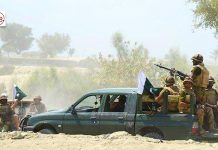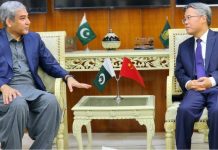Author: Malguzar Meerani
Global politics has undergone significant changes in recent years, witnessing new alliances and shifts in friendships and enmities. The formation of groups like BRICS and the establishment of the SCO have introduced new players on the global stage. China has historically been viewed unfavorably by Western powers, but there has been limited or no direct conflict between them.
The United States and Europe have traditionally held significant influence in global politics, often intervening in regime changes and shaping new governments. However, Russia’s actions, such as its involvement in Syria supporting the Assad regime, indicate its increasing involvement in regime change politics. China has also begun challenging Western powers on multiple fronts.
The SCO, initially formed in 2001 by China, Russia, and several Central Asian states, has expanded both geographically and in its role as a Eurasian political, defense, and security organization. India and Pakistan have become key members, with Iran as an observer. While primarily regional in nature, the SCO is likely to impact regional political discussions in the future. It may even establish a defense force similar to NATO, although its current focus seems to involve engaging in manipulative politics in the region.
The recent conflict between Russia and Ukraine has led to the formation of new alliances. China openly supported Russia, while Europe and the Americas aligned with Ukraine. Global politics appears to be heading toward a bipolar structure, with China and Russia forming one axis and the United States and Europe the other. India is aligned with the Western camp but maintains some independence, such as importing oil from Russia. Pakistan, once an asset to the United States and Europe in South Asia, has now chosen to align with China and Russia. However, Pakistan’s switch in alliances may not be smooth, potentially leading to difficulties and complications.
Pakistan heavily relies on defense imports from Europe and the Americas. If it changes camps, it may face challenges in updating its defense assets. Additionally, Pakistani elites, particularly military generals who hold significant power, prefer Western destinations for retirement rather than settling in China’s less desirable cities. Nevertheless, Pakistan has decided to establish a close relationship with its new allies. China has also ensured Pakistan’s cooperation in suppressing resistance from Baloch warriors.
Despite China’s support, Pakistan has failed to secure its interests in the region. Western powers have recognized Pakistan’s double-dealing and withdrawn their support. Pakistan sought assistance from Gulf states, but they have shown little interest in a failing state on the verge of collapse. If Pakistan leaves the Western camp for China’s alliance, the West will likely use its influence to create difficulties for Pakistan in international institutions like the IMF, World Bank, and through its Gulf allies. China remains Pakistan’s only hope for help.
In the changing political landscape, the Baloch people face the challenge of finding allies. Neither the Russian nor Western camps have shown significant interest in the Baloch issue, despite occasional calls by Western powers for Pakistan to address human rights violations in Balochistan. Baloch activists should raise human rights concerns in Western states to exert pressure on Pakistan. While not true friends, Western powers may highlight these concerns in global forums to undermine Pakistan. China, on the other hand, is supporting Pakistan to crush the Baloch movement, and neighboring countries are unable to assist.
It is evident that the Baloch people need a central political force to engage with global organizations and forge alliances. While some states have expressed interest in connecting with the Baloch diaspora, the lack of unity and communication among Baloch groups has been a hurdle. Establishing a strong political party is crucial for influencing the global community towards an independent Balochistan and creating internal pressure on Pakistan. Baloch groups in the diaspora must put aside their differences and unite under a single political organization to seek allies.
In such circumstances, the Baloch people should strive to demonstrate their worth and significance. Global powers are aware of Balochistan’s geopolitical importance and the Baloch people’s determination to fight for freedom and regional stability. A free, peaceful, and prosperous Balochistan is likely to garner support and friendship from these powers. Therefore, it is crucial for the Baloch people to assert their sovereignty and prove that they are the rightful authority over their land. By doing so, they can attract genuine friends and allies.
Disclaimer: The views and opinions expressed in this article are those of the author and do not necessarily reflect the official policy or position of The Balochistan Post or any of its editors.






























